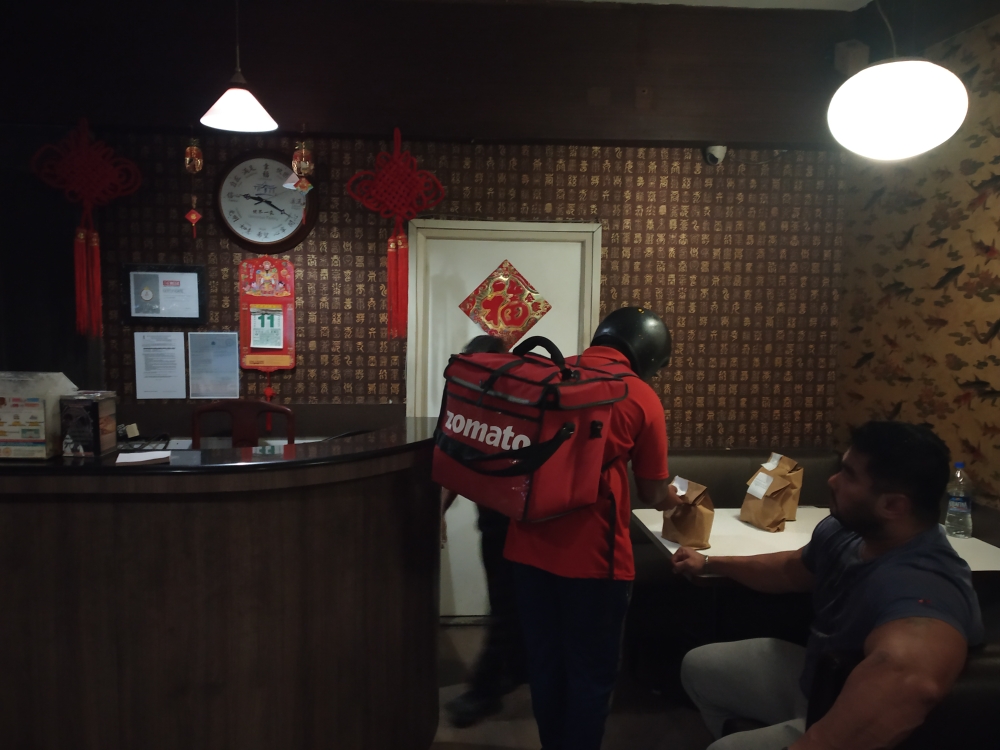In what would become the first high-profile public listing by a consumer internet startup in India in a decade, food delivery giant Zomato has filed a draft red herring prospectus (DRHP) with markets regulator SEBI on Wednesday.
In its filing, the Tiger Global and Ant Group-backed firm said it plans to raise INR 82.5 billion (USD 1.11 billion) by putting up the company’s equity shares for sale. Of the total, INR 7,500 crore (USD 1 billion) will be raised through the fresh issuance of shares. The rest of the INR 750 crore (USD 100 million) will be raised through an offer for sale by existing shareholder Info Edge.
Info Edge is Zomato’s one of the earliest backers and currently owns around 18.5% stake in the company, worth INR 7,270 crore. On Tuesday, in a stock exchange filing, Info Edge said it would be selling its shares in Zomato in the upcoming public offering.
Zomato said it plans to utilize INR 5,625 crore (USD 756 million) from the proceeds in funding growth initiatives, such as customer and user acquisition, bolstering infrastructure on delivery and technology fronts.
Losses expected to grow
As per financials shared in the IPO prospectus, Zomato reported a revenue of INR 1,368 crore (USD 183 million) for the period April 1 to Dec 31, 2020, while its losses in the same period stood at INR 684 crore. In FY20, the company clocked a revenue of INR 2,742 crore, at a loss of INR 2,363 crore.
India’s food delivery sector was badly impacted due to COVID-19-induced three-month-long lockdown last year, followed by sporadic local lockdowns in several states. A large number of restaurants remained shut even though government allowed food and beverage establishments to open up in the latter half of last year.
In its filing, Zomato said it anticipates increased expenses in the future which might increase its net loss.
“The COVID-19 pandemic, or a similar public health threat, has had and could impact our business, cash flows, financial condition and results of operations. If we fail to retain our existing restaurant partners, customers or delivery partners or fail to add new restaurant partners, delivery partners or customers to our portfolio in a cost-effective manner, our revenue may decrease and our business may be adversely affected,” Zomato’s filing noted.
The company added that its food delivery business was significantly impacted during the first quarter of the FY2021 as most restaurant establishments had temporarily closed operations in response to government-mandated lockdowns and customers were unwilling to order food from restaurants. “Similarly, our revenues from our dining out services were severely impacted by the COVID-19 pandemic.”
The company claimed that its food delivery business has recovered since lockdowns eased in India, although its dining-out business is still recovering as customers are still reluctant to dine out as a precautionary measure. It cautioned that further government actions and lockdowns to contain the spread of COVID-19 could adversely impact the company once again.
With its billion dollar fund raising via IPO, Zomato plans to invest heavily to grow the business even though it expects its costs and losses to increase over time. The company said it would spend on advertising and sales promotion to attract customers and restaurant partners to its platform. It also plans to expand its offerings, enter new markets in India, and increase its delivery partner network.
Citing RedSeer, Zomato said it has a large total addressable food services market opportunity of USD 65 billion, which is growing at 9% per annum and is expected to reach USD 110 billion in size by 2025.
“While food service in India is highly under-penetrated, it is likely to grow steadily, taking share away from home-cooked food as has been the trend in the past as well,” it said. Zomato is banking its growth on the changing consumer behavior such as “reduced dependence of millennials on home-cooked food/kitchen set-up, increasing consumer disposable income and spending, and higher adoption among the smaller cities.”
Read this:Started as Yelp and turned into DoorDash, Zomato’s decade-long journey to IPO
Zomato, which primarily competes with Swiggy and the recent entrant Amazon Foods, said in the competitive market, it has “consistently gained market share over the last four years to become the category leader in the food delivery space in India in terms of GOV (gross order volume) from October 1, 2020, to March 31, 2021. Last year in January, Zomato bought Uber Eats India for USD 206 million, which bumped its market share to about 50%. This acquisition also helped Zomato spread its footprints in the southern part of India, which is largely dominated by Swiggy.
Meanwhile, in the run-up to its IPO, Zomato added five new independent members to its board, including four women.
